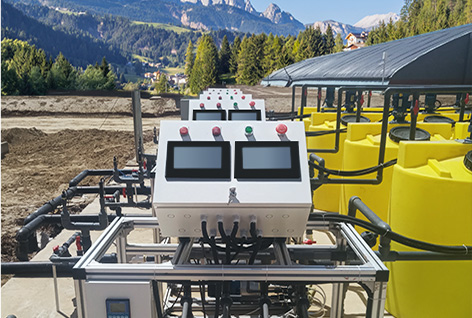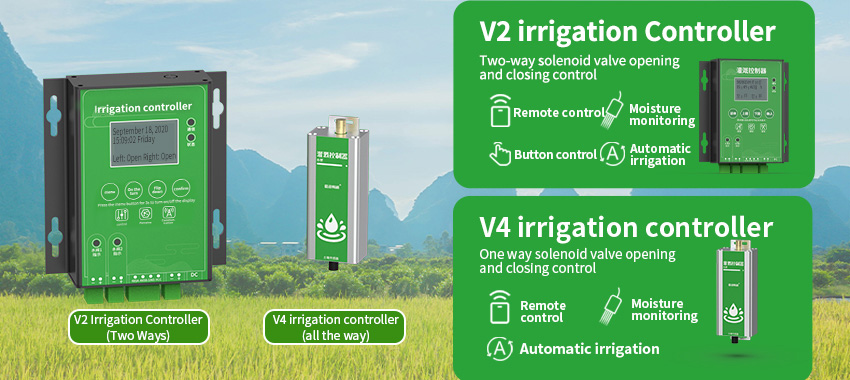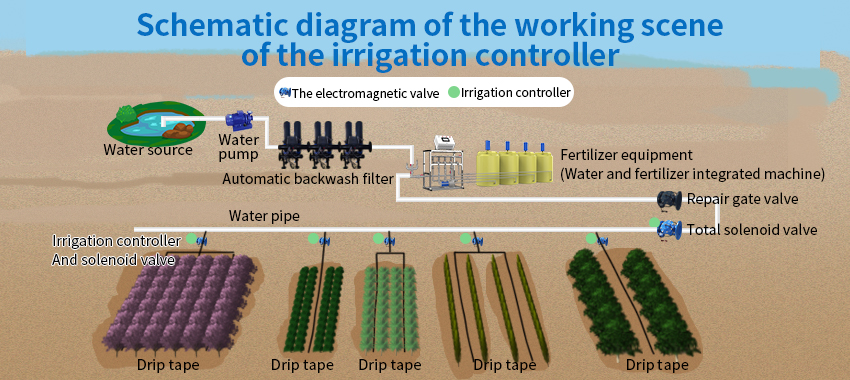Irrigation filters system work by distributing water through pipes and sprinklers ensuring that every plant receives the right amount of water and nutrients. However, water sources used for irrigation can be contaminated with sediment, organic matter, algae, fungi, and bacteria. These can clog irrigation system components such as valves, nozzles, and sprinklers and cause reduced flow and spray coverage. As a result, crop yields can be significantly affected.

To ensure efficient use of water, irrigation filter systems are used to remove contaminants that can damage the irrigation system, compromising crop health, and reduce the life of the entire irrigation system. Moreover, some contaminants, such as algae and bacteria, can harm the environment if left unmanaged. Efficient irrigation filter systems provide ease-of-use, reduce time expenditure and maintenance costs, save water, and protect both the environment and crop yield.

The main function of an irrigation filter system is to remove particulate matter from the water. Particulate matter can come from different sources; it can be soil particles, sand, rust, organic matter, debris, or even inorganic salts. This matter not only affects plant growth and crop yield, but also causes blockages and wear and tear on the irrigation system components. The irrigation filters prevent blockages by capturing contaminants before they enter the irrigation system.
Efficient irrigation filter systems come in various shapes and sizes – vertical pressure filters, horizontal pressure filters, centrifugal sand separators, hydrocyclone filters, and screen filters. Filters are rated by mesh size or micron rating. The mesh size refers to the size of the screen that captures the debris. The smaller the mesh size, the more debris the filter will capture. When selecting a filter, it’s essential to choose the right size based on the flow rate of the irrigation system, and the type, size, and density of the debris. The wrong filter can lead to increased pressure, reduced flow rate, and compromised filtration performance.
One popular and easy-to-use efficient irrigation filter system is the automatic screen filter. These filters require minimal operating attention because they employ a self-cleaning mechanism. A self-adjusting cleaning arm moves over the screen, which captures the debris while unfiltered water passes through the filter’s inlet towards the outlet side. The cleaning arm moves over the screen and removes the captured debris into the flushing channel when there are enough particles accumulating on the screen. The dirty water from the channel flows out of the filter while opening the flush valve.

Another efficient irrigation filter system is the granular media filter, which uses activated carbon or sand as a medium to capture the debris in the filter. It can reduce clogs in micro-irrigation systems by ensuring that organic matter, sediment, and algae do not pass through the filters. Granular filter media cleans itself through backwashing, which flushes the particulate matter away.
Efficient irrigation filter systems also help protect the environment. Some contaminants found in surface water, such as pesticides, fertilizers, and bacteria, can harm aquatic life. Effective irrigation filters can remove these pollutants from irrigation water, reducing the impact of agriculture on the environment. Moreover, using more efficient filters reduces the overall amount of water used which protects natural water resources.
In conclusion, an efficient irrigation filter system is essential for modern agricultural practices because it improves efficiency, reduces maintenance costs and time expenditure, saves water and protects both the crops and the environment. By preventing unwanted materials from entering the irrigation system and reducing water usage, efficient irrigation filter systems contribute to environmental responsibility while maintaining the quality of crop production.